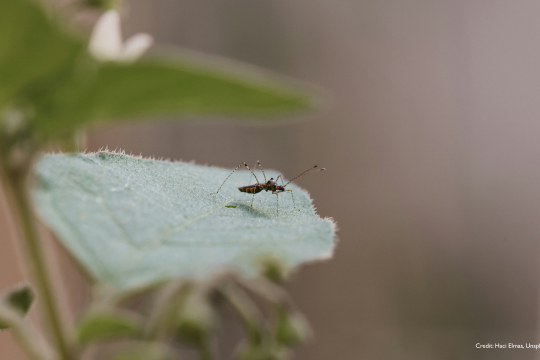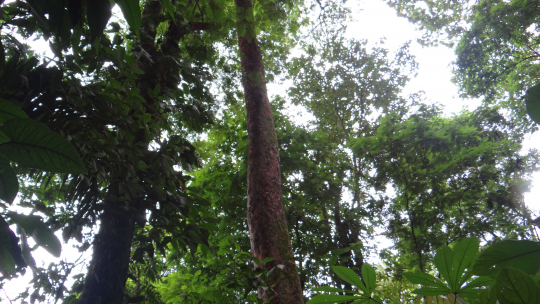A new article published in the Environmental and Resources Economics journal estimates the marginal effects of increasing forest cover on dengue prevalence in Costa Rica. The study shows that an increased forest cover could have a very positive impact.
In 2019, Central America suffered a severe dengue epidemic affecting thousands of people. Specially, in Costa Rica, the Ministry of Health reported 3 381 cases in January 2024, becoming the highest number of cases per month in the last 10 years, according to information shared in national media.
According to the World Health Organization (WHO), Dengue is a viral infection caused by the dengue virus (DENV), which is transmitted to humans through the bite of infected mosquitoes, mainly in tropical and sub-tropical climates worldwide.
The most common symptoms of Dengue are high fever, headache, body aches, nausea, and rash, but in severe cases, it can be fatal.
Could have significant effects
This health situation led a group of EfD Central America researchers to make estimations of the marginal effects of increasing forest cover on dengue prevalence in Costa Rica by using econometric models to relate hospital admission records to forest cover maps from 2001 and 2011.
The article titled Forest Cover and Dengue in Costa Rica: Panel Data Analysis of the Effects of Forest Cover on Hospital Admission and Outbreaks was written by Matías Piaggio, main author, Marisol Guzmán, Eduardo Pacay, Juan Robalino, and Taylor Rickets.
Up to $80,000 could be saved
According to the paper, the researchers used the same econometric models to relate hospital admissions and outbreaks. Using the information, they predict that if forest cover had been increased by three percentage points for 10 years (0.29% per year), 29 dengue hospital admissions per year might have been avoided, which, depending on the year, represents around 1.4% of cases in the country.
"These numbers represent average savings between 7,230 to 82,207 USD per year," said Pacay. He added that these amounts will depend on the severity of the impact caused by dengue fever on people.
Forested areas versus deforested areas
Eduardo Pacay explained that the presence of forests could control dengue for the following reasons:
First, deforested tropical areas might provide more suitable habitats for mosquito larvae because they allow the presence of standing water and higher temperatures, which are perfect for the reproduction of the mosquitoes.
Second, deforestation is often accompanied by increased human habitation and agriculture, potentially leading to higher host density for mosquitoes.
Also, the biodiversity of forests could redistribute vector meals to less competent hosts or reduce mosquito reproduction. Finally, forested areas could support larger populations of mosquito predators compared to urban areas.
Interpret results with caution
"Our study demonstrates that forest conservation can serve as a public health investment, enhancing social welfare by mitigating illness and reducing associated healthcare expenditures," shared the authors. However, they ask for caution in interpreting the results.
Eduardo Pacay explained that this is the first study to estimate the effect of changes in forest cover on dengue virus infections and contributes to the existing scientific evidence on the ecosystem services provided by forests to society, and directly, to human health.
"This is particularly relevant in a post-pandemic context like the current one, as well as when making decisions that involve the development of policies related to nature conservation and public health," said Eduardo Pacay.
Written by: Marianela Argüello L.

